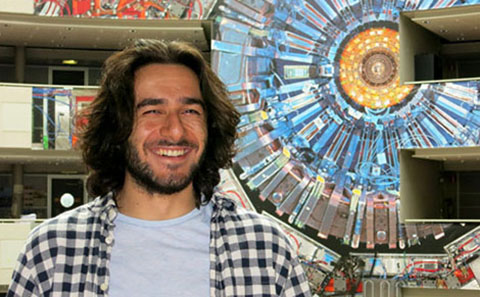A miniature cube-shaped satellite built by students from the University of Southampton has won the backing of the European Space Agency (ESA) in its bid to improve space debris models.
The UoS3 satellite, the result of a cross-university collaboration including group projects from the Department of Electronics and Computer Science (ECS), is one of just six projects chosen by ESA to receive expert support and access to test facilities as part of its educational Fly Your Satellite!programme.
If the satellite passes these stages it may then be eligible for a launch, making Southampton one of the first UK universities in space. The small satellite, or CubeSat, measuring just 10cm wide, was the only UK university project to win ESA support in the competition.
Students from ECS have contributed to power, controller and communications solutions for the satellite in Group Design Projects (GDP) supervised by Professor Rob Maunder, Professor Steve Gunn and Dr Alex Weddell since 2014, and continue to help the project through membership of the University of Southampton Spaceflight Society
Professor Rob Maunder, who led the GDP on the satellite telecommunications subsystem, says: The backing of the ESA is a fantastic development that recognises the significant progress of UoS3. This satellite is not only a demonstration of technical achievement, but also of successful project management. Its development has drawn upon more than 60 students and staff from various disciplines from across the University, which has required very careful coordination. The many students that have contributed to UoS3 will be rewarded with a great sense of accomplishment when all their efforts are launched into space.
Once launched, the satellite will orbit the Earth at a height of 400km and gather data that will be used to improve re-entry predictions for space objects.
During its year in orbit, students will monitor the satellite health and receive pictures and scientific data through a ground station. The data will be used to improve space debris models, for which the University is a recognised global leader.
Senior research assistant Clemens Rumpf, who started the project with former PhD student Aleksander Lidtke, adds: an amazing achievement and a great honour for the University to be one of just six projects chosen for the ESA Fly Your Satellite! programme. The opportunity to work on a real space mission has been an invaluable one for our students. CubeSat hold a significant potential to facilitate research across the University, and we are just starting to explore the possibilities this project is opening up for us in terms of research and collaboration.
